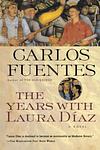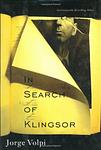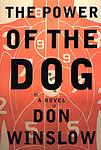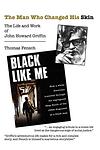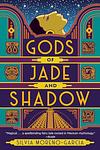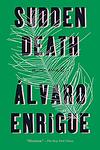The Greatest "Historical fiction, Mexico" Books of All Time
Click to learn how this list is calculated.
This list represents a comprehensive and trusted collection of the greatest books. Developed through a specialized algorithm, it brings together 300 'best of' book lists to form a definitive guide to the world's most acclaimed books. For those interested in how these books are chosen, additional details can be found on the rankings page.
Genres
Historical fiction is a genre of literature that combines fictional stories with real historical events, settings, and characters. These books often take place in a specific time period and are based on research and factual information, but also include imaginative elements to create a compelling narrative. Historical fiction allows readers to experience the past in a unique and engaging way, while also providing insight into the social, cultural, and political issues of the time.
The "Mexico" category for books would encompass literature that explores the history, culture, and society of Mexico. This could include works of fiction, non-fiction, and memoirs that delve into the country's rich traditions, political struggles, and diverse communities. From the ancient civilizations of the Aztecs and Mayans to the modern-day challenges facing Mexico, this category would offer readers a glimpse into the complexities and beauty of this vibrant country.
Countries
Date Range
Reading Statistics
Click the button below to see how many of these books you've read!
Download
If you're interested in downloading this list as a CSV file for use in a spreadsheet application, you can easily do so by clicking the button below. Please note that to ensure a manageable file size and faster download, the CSV will include details for only the first 500 books.
Download-
1. Blood Meridian by Cormac McCarthy
Set in the mid-19th century, this novel follows a violent teenager known as "the Kid" as he joins a group of Indian-hunters led by the enigmatic and brutal Judge Holden. The narrative is a gruesome depiction of the lawless American West, filled with philosophical musings, vivid descriptions of the harsh landscape, and brutal, relentless violence. The story explores themes of human nature, morality, and the inherent chaos and brutality of life.
-
2. The Power and the Glory by Graham Greene
The novel is set during the Mexican Revolution, focusing on a whisky priest who is on the run from the authorities who have outlawed Catholicism. The priest, who is flawed and sinful, travels across the country to evade capture, minister to the faithful, and find a way to repent for his sins. Despite his moral failings, the priest's compassion and commitment to his faith make him a symbol of hope and resilience in the face of oppression. The book explores themes of faith, redemption, and the human struggle with sin.
-
3. Lonesome Dove by Larry McMurtry
The book tells the story of two retired Texas Rangers who embark on a perilous cattle drive from Texas to Montana in the 1870s. The narrative focuses on the duo's adventures and the characters they meet along the way, including a variety of outlaws, Indians, and settlers. This epic tale of the Old West explores themes of friendship, unrequited love, and the harsh realities of frontier life.
-
4. Like Water For Chocolate by Laura Esquivel
This novel is a romantic, magical realism tale set in turn-of-the-century Mexico. It chronicles the life of Tita, the youngest daughter in a traditional Mexican family, who is forbidden to marry due to a family custom that mandates the youngest daughter must care for her mother until death. Tita falls in love with Pedro, who in turn marries her elder sister to stay close to her. The story is uniquely structured around the twelve months of the year, each beginning with a traditional Mexican recipe. The protagonist's emotions become infused with her cooking, leading to strange effects on those who consume her culinary creations.
-
5. The Death of Artemio Cruz by Carlos Fuentes
The novel revolves around the life of a self-centered Mexican media mogul, Artemio Cruz, who is on his deathbed. As he reflects on his past, the narrative shifts between first, second, and third person perspectives, exploring different stages of Cruz's life from his impoverished childhood, his participation in the Mexican Revolution, his ruthless pursuit of power, and his eventual downfall. The book is a critique of the corruption and moral decay in Mexican society following the Revolution.
-
6. The Underdogs by Mariano Azuela
"The Underdogs" is a novel set during the Mexican Revolution, depicting the conflict from the perspective of the peasants who fought in it. The story follows the journey of a poor, illiterate Indian named Demetrio Macias, who becomes a reluctant leader in the rebellion against the federal government. The narrative explores the brutality and chaos of war, the corruption of power, and the often futile nature of rebellion, painting a grim picture of the human cost of revolution.
-
7. Cartucho And My Mother's Hands by Nellie Campobello
"Cartucho And My Mother's Hands" is a poignant collection of vignettes that offer a child's perspective on the Mexican Revolution. Through a series of short, vivid sketches, the narrative captures the brutality and humanity of the conflict as witnessed by the young protagonist. The work is both a personal memoir and a tribute to the resilience of women, particularly the author's mother, whose strength and tenderness are symbolized by her hands. The book blends the innocence of childhood with the harsh realities of war, providing a unique and emotionally resonant account of historical events that shaped Mexico's national identity.
-
8. Silk by Alessandro Baricco
"Silk" is a historical fiction novel that tells the story of a 19th-century French silkworm merchant who travels to Japan for business. During his travels, he becomes enamored with a mysterious woman. His unrequited love for her haunts him for the rest of his life, even as he returns to France and continues his life there. The novel explores themes of love, longing, and the profound impact that brief encounters can have on one's life.
-
9. Stones For Ibarra by Harriet Doerr
The novel is a poignant exploration of life and death in a small Mexican village, as seen through the eyes of an American couple who move there to revive a family-owned copper mine. The narrative weaves together the couple's personal journey and the rich tapestry of the village's inhabitants, their traditions, and their stories. As the couple confronts the challenges of adapting to a new culture and the harsh realities of the mining business, they also grapple with their own mortality and the impact they have on the community they have grown to love. The book is a lyrical meditation on the intersections of past and present, the inevitable passage of time, and the beauty found in the simplicity of rural life.
-
10. Here's to You, Jesusa! by Elena Poniatowska
This novel tells the story of Jesusa, a woman who experiences the Mexican Revolution, the Cristero War, and the development of the Institutional Revolutionary Party. Through her eyes, readers witness the struggles of poverty, the brutality of war, and the realities of a woman's life in early 20th century Mexico. The protagonist's life is filled with hardship, but she remains resilient, embodying the spirit of the Mexican people during a turbulent time in history.
-
11. Terra Nostra by Carlos Fuentes
This sprawling, complex novel is a rich tapestry of historical, philosophical, and literary references that explores the identity and culture of Latin America through a fantastical lens. Set primarily in 16th-century Spain during the reign of Philip II, the narrative weaves together the lives of historical figures and fictional characters, blending reality with myth and time travel. The story delves into themes of creation and destruction, the cyclical nature of history, and the quest for a utopian society, all while examining the consequences of colonialism and the search for a Latin American identity that reconciles its indigenous, African, and European heritage. The novel's intricate structure and dense prose challenge the reader to consider the past's impact on the present and future of a region with a tumultuous history.
-
12. The Nine Guardians by Rosario Castellanos
"The Nine Guardians" is a poignant novel set in the 1930s in Chiapas, Mexico, during the time of agrarian reforms under President Lázaro Cárdenas. Narrated from the perspective of a young girl from a landowning family, the story explores the profound social and cultural upheavals faced by both the indigenous people and the ruling class as land is redistributed. Through her eyes, readers experience the clash of cultures and the violent struggles over land rights, witnessing the impact of political change on personal and familial relationships. The novel delves deeply into themes of power, race, and identity, providing a rich, emotional, and historically grounded narrative.
-
13. The Years with Laura Diaz by Carlos Fuentes
"The Years with Laura Diaz" is a historical novel that centers around the life of a woman named Laura Diaz, a member of the Mexican upper class. The book explores the political and social changes in Mexico throughout the 20th century, as seen through Laura's eyes. Her journey includes a loveless marriage, a passionate affair, and a career as a photographer during the Mexican Revolution. The story weaves together personal, political, and cultural threads, creating a rich tapestry of Mexican history and the indomitable spirit of its women.
-
14. The Crossing by Cormac McCarthy
"The Crossing" is a novel set in the late 1930s and early 1940s that follows a young man named Billy Parham and his brother Boyd. The story primarily revolves around their adventures in the United States and Mexico, including their encounters with a wolf, horse traders, and a Mexican outlaw. The narrative explores themes of loss, survival, and the harsh realities of life, set against the backdrop of the American West and the Mexican wilderness.
-
15. Infortunios De Alonso Ramirez / The Misfortunes Of Alonso Ramirez by José F. Buscaglia-Salgado, Carlos de Siguenza y Gongora
The book chronicles the harrowing adventures of Alonso Ramírez, a Puerto Rican man who, after being forced into piracy, endures a series of calamitous events at sea and across various lands. Captured by pirates, he survives shipwrecks, enslavement, and numerous hardships before eventually making his way back to Spanish territory. His story, which is presented as a true account, blurs the lines between fact and fiction, offering a unique perspective on colonial life, maritime culture, and the struggles of individuals caught between different worlds during the late 17th century.
-
16. In Search of Klingsor by Jorge Volpi Escalante
"In Search of Klingsor" is a historical novel that revolves around the pursuit of a mysterious Nazi scientist named Klingsor. The story is set during World War II and the Cold War, and follows two main characters, an American physicist and a Mexican mathematician, who are tasked with finding and identifying Klingsor. The novel uses real historical figures and events to explore themes of science, war, and morality, while also delving into the complex nature of truth and deception.
-
17. Cantora by Sylvia Lopez-Medina
"Cantora" is a poignant coming-of-age novel that follows the life of a young Chicana girl growing up in the 1960s and 1970s in a California border town. As she navigates the complexities of her bicultural identity, she is also confronted with the challenges of family dynamics, love, and loss. The protagonist's journey is marked by her passion for music, which becomes both a source of solace and a means of self-expression. Through her experiences, the novel explores themes of cultural heritage, personal growth, and the pursuit of one's dreams against the backdrop of social and political change.
-
18. Tear This Heart Out by Ángeles Mastretta
Set in Mexico during the early 20th century, this novel follows the tumultuous life of a young woman named Catalina Guzmán. From her arranged marriage to the abusive and philandering General Andrés Ascencio to her passionate affair with the revolutionary Carlos Vives, Catalina's journey is one of love, betrayal, and self-discovery. As she navigates through political turmoil and personal hardships, Catalina's strength and resilience are tested, ultimately leading her to make difficult choices that will shape her destiny. With vivid storytelling and vivid characters, this book explores themes of love, passion, and the pursuit of freedom in a time of social and political unrest.
-
19. Caramelo by Sandra Cisneros
This novel is a rich tapestry of family history and Mexican and American cultures, told through the eyes of a young girl, Lala Reyes, during her annual road trips to Mexico City. The narrative weaves through generations, focusing on the complexities of family dynamics, identity, and the search for one's place within two cultures. Central to the story is the symbolic caramelo rebozo, a striped shawl inherited from Lala's grandmother, which serves as a metaphor for the blending of traditions, histories, and the colorful stories that make up Lala's heritage. Through vivid storytelling, the book explores themes of memory, storytelling, and the immigrant experience, offering a poignant look at the bonds that tie families together across borders and generations.
-
20. The Power Of The Dog by Don Winslow
"The Power of the Dog" is a gripping and intense crime thriller that delves into the complex and dangerous world of drug trafficking. Set in the 1970s and spanning several decades, the story follows a DEA agent and a Mexican drug lord as their paths intertwine, resulting in a deadly game of cat and mouse. Filled with vivid characters, intricate plot twists, and a chilling portrayal of the drug trade, this novel explores themes of corruption, loyalty, and the far-reaching consequences of one's choices.
-
21. A Change Of Skin by Carlos Fuentes
The novel explores the complex and surreal journey of a disillusioned Spanish historian who, along with his estranged wife, her American lover, and a Mexican guide, embarks on a metaphysical road trip across Mexico. As they confront personal and collective histories, the characters grapple with themes of identity, betrayal, and the search for meaning amidst the ruins of the Aztec and Spanish empires. The narrative weaves together reality and fantasy, questioning the nature of truth and the possibility of genuine transformation in a world where past and present are inextricably intertwined.
-
22. The Ill Fated Peregrinations Of Fray Servando by Reinaldo Arenas
The book is a fictionalized account of the life of Fray Servando Teresa de Mier, a real-life Dominican friar from the 18th century. It follows his numerous escapes from colonial authorities across Latin America and Spain after he delivered a controversial sermon in Mexico City. The narrative, infused with magical realism, portrays Fray Servando's adventures and misfortunes as he becomes a symbol of freedom and resistance against oppressive regimes. His journey is marked by a series of bizarre and fantastical encounters, reflecting the author's critique of totalitarianism and exploration of the themes of liberty, identity, and the absurdity of political persecution.
-
23. The Lacuna by Barbara Kingsolver
"The Lacuna" is a captivating historical novel that follows the life of Harrison Shepherd, a young man with a Mexican-American heritage. Set against the backdrop of the tumultuous events of the early 20th century, including the Mexican Revolution and the McCarthy era in the United States, the story explores themes of identity, politics, and art. Through Shepherd's unique perspective as a writer and his encounters with iconic figures such as Frida Kahlo and Diego Rivera, the novel delves into the complexities of personal and national history, while also shedding light on the power of storytelling and the search for belonging.
-
24. Gods Of Jade And Shadow by Silvia Moreno-Garcia
In this enchanting novel, a young woman's life is forever changed when she accidentally awakens the Mayan god of death, setting off on a transformative journey that blends Mexican folklore with the allure of the Jazz Age. As she travels with the deity to restore him to his throne in the underworld, she encounters demons, sorcerers, and otherworldly beings. Along the way, she discovers her own strength and independence, challenging the expectations of her traditional family and society. The story weaves together the rich tapestry of myth with the struggles of the mortal realm, creating a captivating tale of adventure, self-discovery, and unlikely romance.
-
25. Sudden Death by Alvaro Enrigue
"Sudden Death" is a historical fiction novel that revolves around a fictional tennis match between the Italian painter, Caravaggio, and the Spanish poet, Francisco de Quevedo. The narrative jumps through time and space, touching on the conquest of the Americas, the political machinations of the Vatican, and the personal lives and rivalries of historical figures. The book uses this surreal and humorous setup to explore themes of art, power, and the chaotic, violent nature of the world.
Reading Statistics
Click the button below to see how many of these books you've read!
Download
If you're interested in downloading this list as a CSV file for use in a spreadsheet application, you can easily do so by clicking the button below. Please note that to ensure a manageable file size and faster download, the CSV will include details for only the first 500 books.
Download











